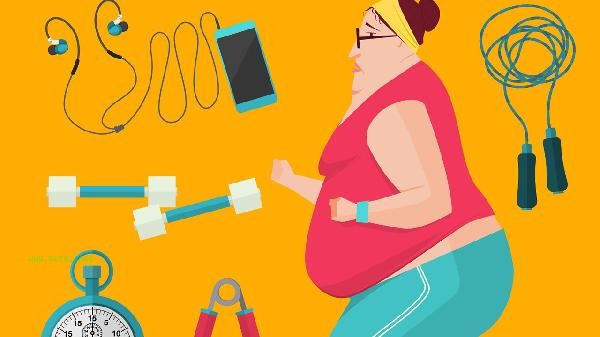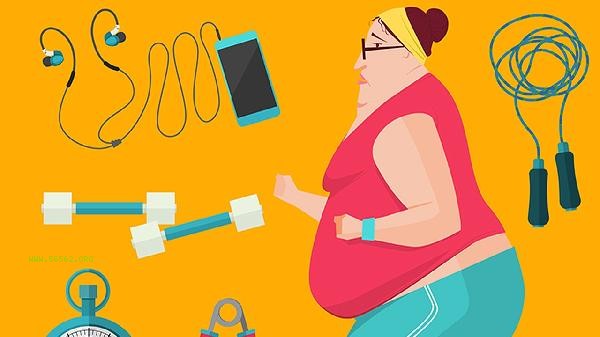Menopausal women with abdominal obesity can scientifically lose weight by adjusting their diet, increasing aerobic exercise, supplementing with plant estrogens, controlling stress hormones, and improving sleep quality. Abdominal fat accumulation is closely related to factors such as decreased estrogen levels, decreased metabolic rate, and changes in visceral fat distribution.

1. Adjust diet structure
Reduce refined carbohydrates intake, replace white rice and flour with whole grains, and daily vegetable intake should reach 500 grams or more. Priority should be given to dark vegetables such as broccoli and spinach. High quality protein sources are mainly fish and soy products. It is recommended to steam or mix cold to avoid high oil and high salt cooking. Moderate consumption of foods rich in omega-3 fatty acids, such as flaxseed and chia seeds, is recommended.
2. Increase aerobic exercise
Engage in 150 minutes of moderate intensity exercise per week, such as brisk walking, swimming, cycling, etc., maintaining a heart rate of 60% -70% of maximum heart rate during exercise. It is recommended to combine resistance training with 2-3 core muscle exercises per week, such as plank support, supine leg lifts, etc., which can help improve basal metabolic rate. It is advisable to choose the evening when estrogen levels are higher for exercise.
3. Supplementing with phytoestrogens
Soybeans and their products can be consumed in moderation in daily life, among which soy isoflavones have a bidirectional regulatory effect on estrogen. Ge Gen powder, Angelica sinensis and other medicinal and edible ingredients can be consumed together, but should not be consumed in excess. If necessary, soy isoflavone supplements can be used under the guidance of a doctor to avoid self medication of hormone drugs.

4. Control stress hormones
Long term stress can lead to an increase in cortisol levels, promoting abdominal fat accumulation. Stress can be relieved through mindfulness meditation, deep breathing exercises, and other methods, with a daily relaxation time of 15-20 minutes. Avoiding overeating to relieve emotions can cultivate hobbies such as gardening and handicrafts to divert attention.
5. Improve sleep quality
Ensure 7-8 hours of sleep per day and avoid using electronic devices 2 hours before bedtime. Keep the bedroom temperature at 18-22 degrees Celsius and choose blackout curtains to create a dark environment. If you have symptoms of hot flashes and night sweats, you can wear moisture wicking cotton pajamas and soak your feet in warm water before going to bed to help you fall asleep.

Menopausal weight loss requires establishing a long-term health management plan to avoid extreme dieting or vigorous exercise. The daily water intake should be at least 2000 milliliters, and alternative sugary drinks such as light green tea and rose tea can be consumed. Regularly monitor the changes of waist circumference and body fat rate. For chronic diseases such as hypertension and diabetes, a personalized plan should be developed under the guidance of doctors. Maintaining positive social activities can help maintain mental health, and if necessary, seek guidance from a professional nutritionist.




Comments (0)
Leave a Comment
No comments yet
Be the first to share your thoughts!